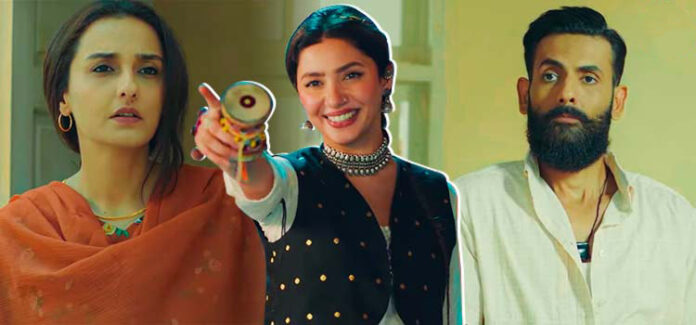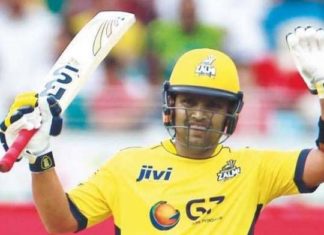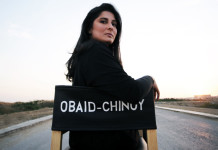Rlazia’s story finally kicked off last night as Mahira Khan introduced us to the world of Razia. Here are 5 Points that stood out in the drama!
Express Entertainment’s “Razia” is a mini-series aimed to empower and motivate with a reminder that anything is possible when you dare to dream big. The TV serial is both written and directed by the acclaimed Mohsin Ali, also known for penning memorable projects “Gunah” and “Dunk” It is produced by Hina Aman and Kamran Afridi and stars Mahira Khan, Momal Sheikh, Mohib Mirza, Parveen Akbar, Kausar Siddiqui, Shaheera Jalil Albasit, Kaleem Ghori, Arman Sami, Kashif Hussain, M.Saqib Rajput, Shahzad Mallick, Akbar Islam, Daniya Kanwal, Samina Nazeer, Abeer Na, Fajr Sheikh, Esha Usman. The first episode of the limited series aired on Express Entertainment on 14th September at 8 pm.
So what is Razia’s story really about? As Mahira Khan’s character (in the promos) asserts that her tale isn’t about a troublesome mother-in-law, but rather, a journey of discovering equal rights. The narrative takes a dig at clichéd yet viral storylines – no hot pursuit of a wealthy brother-in-law is Razia, quips Mahira, but rather, the focus is on the aspiration for education. She makes it clear she has no intentions of romanticizing toxic male heroes in the name of love or mourning the birth of a daughter (as opposed to celebrating a son). Furthermore, the drama and dialogues touch upon girls’ access to public spaces, recreation and the great outdoors. All this executed with a sharp use of reverse psychology, with powerful dialogues that deliver a well-directed shock to the system and keep it interesting as well.
Couple this with dark humour that makes a timely appearance, stringing the story for impact and sending out pointed messages sans preachy wordplay or sob visuals. Here are 5 points from the first episode that combined reverse psychology and symbolism to deliver a compelling narrative:
Celebrating A Beta VS Mourning A Beti
The story is set in Khwaab Nagar, 1997 and the drama takes a notable effort to go back in time, yet strangely and unfortunately, is still so relevant. Reverse psychology and symbolism played out impactfully where Momal Sheikh as Zohra and Mohib Mirza as Saleem bring little Razia home. The Dadi, ironically, and oh so fiercely hoped, wished for, and expected a grandson, prepping for the grand welcome and celebrations for a baby boy.
Turns out it was a blessed little girl instead and puzzlingly, that little soul is welcomed to a deafening silence, screaming disappointment. No charity or donations (Sadqa) in her name, no special celebratory welcome with a shower of rose petals, no garlands for the mother and no mithai or gifts for neighbours – the birth of a girl does not warranty such festivity and grandeur! The stark contrast is telling when Razia’s brother is born – there is all the joy, an elaborate welcome, sweets, distribution of gifts and a room full of well-wishers to welcome the “boy”, their Shehzada – the difference is pronounced.
On a more sober note, the dadi explains to her son, the birth of a daughter implies a lifelong burden where her marriage will be met by demands of jahez from the in-laws whereas a boy can contribute financially- a subtle yet disturbingly effective form of brainwashing?
Boys Are Immune To Labels
Which brings us to our next point, it so happens that the Dadi who fervently hoped and prayed for a grandson proceeds to hold the much coveted grandson in her arms, collapses in the moment and passes away instantly. But there’s a voice in the background, (Mahira’s) who utters the unspoken – if the dadi was about to hold a girl in her arms, she would have been considered inauspicious the very same second. She would forever be considered the cursed child who barely entered the world and ate her dadi alive. Yet, ironic how a boy holds the super power of immunity, never for a moment being labelled inauspicious by the elders and the aunties?
The Bicycle – A Symbol Of Empowerment
The drama had ample symbolic references – Mahira Khan’s killer entry in the first couple of scenes was one; it was powerful, visually impressive and pretty bad ass. The bike she rode so fearlessly and the guitar she strung on her back were symbolic of the messages the drama would focus on later. For one, little Razia’s wishes and hopes to be able to have a cycle too, to be able to ride it when she wanted, without having to beg or plead her little brother. Young Razia is quite resourceful and lucky to have a friend like Mannu and manages to get her bike resourcefully. The bike is not just a visually different element but serves as a symbol of empowerment, reflecting the importance of Razia having to fight to do something as basic as getting a bicycle. But wait, larkiyon ka cycle say kya kaam? They should only be playing with dolls, as states Razia’s dad Saleem.
What Is It Then That Girls Are Allowed To Do?
It’s unanimously agreed between us, girls and even most men (if they wish to accept facts), how our public spaces are mostly dominated by men, seldom do Chai Dhabas or public arenas cater to women and young girls occupying spaces on an equal or even a more balanced ratio. The street scene where Mannu and Razia meet is heavily dominated by young men and boys and a heavily normal sight for audiences, well, because that’s how our public spaces appear, don’t they? All men and very few or no women? Razia’s joy was short-lived as she is soon called in by her mother, who then proceeds to resonate society’s incessant warning/opinion “larkiyan larkon say dosti nae karti.” Though, we loved Razia’s question and she made us wonder the same: “Larkiyan cycle nae chala sakti, larko say dosti nae karsakti, karti kya hai larkiyan phir?”
So as Mahira said, abhi tou bas Razia nay pehli baghawat ke hai, let’s see what else Razia will have to endure and power through? What did you like most about the first episode? Do let us know!

















